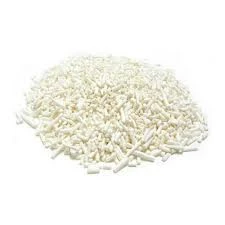
Exploring the Role of Preservatives in Canned Food Shelf Life and Safety
Canned food has become a staple in many households due to its long shelf life, convenience, and versatility. One of the key factors that contribute to the longevity of canned food is the use of preservatives. These substances play a crucial role in preventing spoilage and ensuring that the food remains safe to eat over extended periods. In this article, we will explore the various types of preservatives used in canned foods, their functions, and the ongoing debate over their safety and health implications.
Preservatives are substances added to food products to inhibit the growth of bacteria, molds, and yeasts that can lead to spoilage. In the context of canned foods, preservatives primarily serve to maintain the taste, texture, and nutritional quality of the product while also extending its shelf life. Common preservatives found in canned foods include sodium benzoate, potassium sorbate, and citric acid.
Sodium benzoate is one of the most widely used preservatives, particularly in acidic foods like pickles and fruit juices. It is effective in preventing the growth of harmful bacteria and fungi. However, the use of sodium benzoate has raised concerns due to its potential to form a carcinogenic compound called benzene when exposed to high levels of heat and light. While the amounts used in food are generally considered safe, consumers are advised to be cautious and read labels carefully.
Potassium sorbate is another common preservative, frequently used in a variety of food products, including canned fruits and vegetables. It works by inhibiting the growth of molds and yeasts. Although potassium sorbate is recognized as safe when consumed in moderation, some individuals may experience allergic reactions. This has led to increased interest in natural preservatives, prompting manufacturers to explore alternatives.
Citric acid, derived from citrus fruits, is also used in canned foods as a preservative and flavoring agent. It not only helps to stabilize the product by lowering pH levels but also acts as an antioxidant, preventing oxidative spoilage. Citric acid is widely accepted as safe and is considered a natural alternative to synthetic preservatives.
canned food preservatives

While preservatives play a vital role in food safety, concerns over their long-term health implications have sparked debate among consumers and health experts. Many people are increasingly conscious of the additives present in their food and are opting for products labeled as preservative-free or organic. These products often rely on alternative preservation methods, such as high-pressure processing or vacuum sealing, which can also extend shelf life without the need for synthetic preservatives.
Another factor influencing consumer preferences is the rise of health-conscious diets and the desire for clean labels. As more individuals choose to avoid artificial additives, food manufacturers are adapting by reformulating products to include more natural ingredients and preservatives. This shift reflects a growing awareness of the importance of nutrition and the potential impact of food additives on health.
The safety of preservatives is regulated by agencies such as the U.S. Food and Drug Administration (FDA), which evaluates the safety of food additives before they are approved for use. Nevertheless, it's essential for consumers to stay informed and make choices that align with their dietary preferences and health goals. Reading ingredient labels, understanding the role of preservatives, and opting for whole, minimally processed foods are all strategies for maintaining a balanced diet.
In conclusion, canned food preservatives are essential for ensuring the safety and longevity of food products. While commonly used preservatives like sodium benzoate, potassium sorbate, and citric acid serve important functions, ongoing discussions about their safety continue to shape consumer choices. As the demand for natural and preservative-free products grows, manufacturers are evolving to meet the needs of health-conscious consumers. Ultimately, being informed about food preservatives allows individuals to make educated decisions, balancing convenience with health considerations in their dietary choices.
-
Buy High-Quality Trichloroisocyanuric Acid for Sale | TCCA 90% SupplierNewsAug.30,2025
-
Pure Sodium Dichloroisocyanurate Dihydrate | Powerful DisinfectantNewsAug.29,2025
-
Industrial Chemicals: Quality & Purity for Every IndustryNewsAug.28,2025
-
Nitrile Rubber Honoring Strict Production StandardsNewsAug.22,2025
-
Aspartame Ingredients Honoring Food Safety ValuesNewsAug.22,2025
-
Fertilizer for Balanced Plant NutritionNewsAug.22,2025
-
Cyanide Gold Processing with High Purity AdditivesNewsAug.22,2025
Hebei Tenger Chemical Technology Co., Ltd. focuses on the chemical industry and is committed to the export service of chemical raw materials.
-

view more DiethanolisopropanolamineIn the ever-growing field of chemical solutions, diethanolisopropanolamine (DEIPA) stands out as a versatile and important compound. Due to its unique chemical structure and properties, DEIPA is of interest to various industries including construction, personal care, and agriculture. -

view more TriisopropanolamineTriisopropanolamine (TIPA) alkanol amine substance, is a kind of alcohol amine compound with amino and alcohol hydroxyl, and because of its molecules contains both amino and hydroxyl. -

view more Tetramethyl Thiuram DisulfideTetramethyl thiuram disulfide, also known as TMTD, is a white to light-yellow powder with a distinct sulfur-like odor. It is soluble in organic solvents such as benzene, acetone, and ethyl acetate, making it highly versatile for use in different formulations. TMTD is known for its excellent vulcanization acceleration properties, which makes it a key ingredient in the production of rubber products. Additionally, it acts as an effective fungicide and bactericide, making it valuable in agricultural applications. Its high purity and stability ensure consistent performance, making it a preferred choice for manufacturers across various industries.





